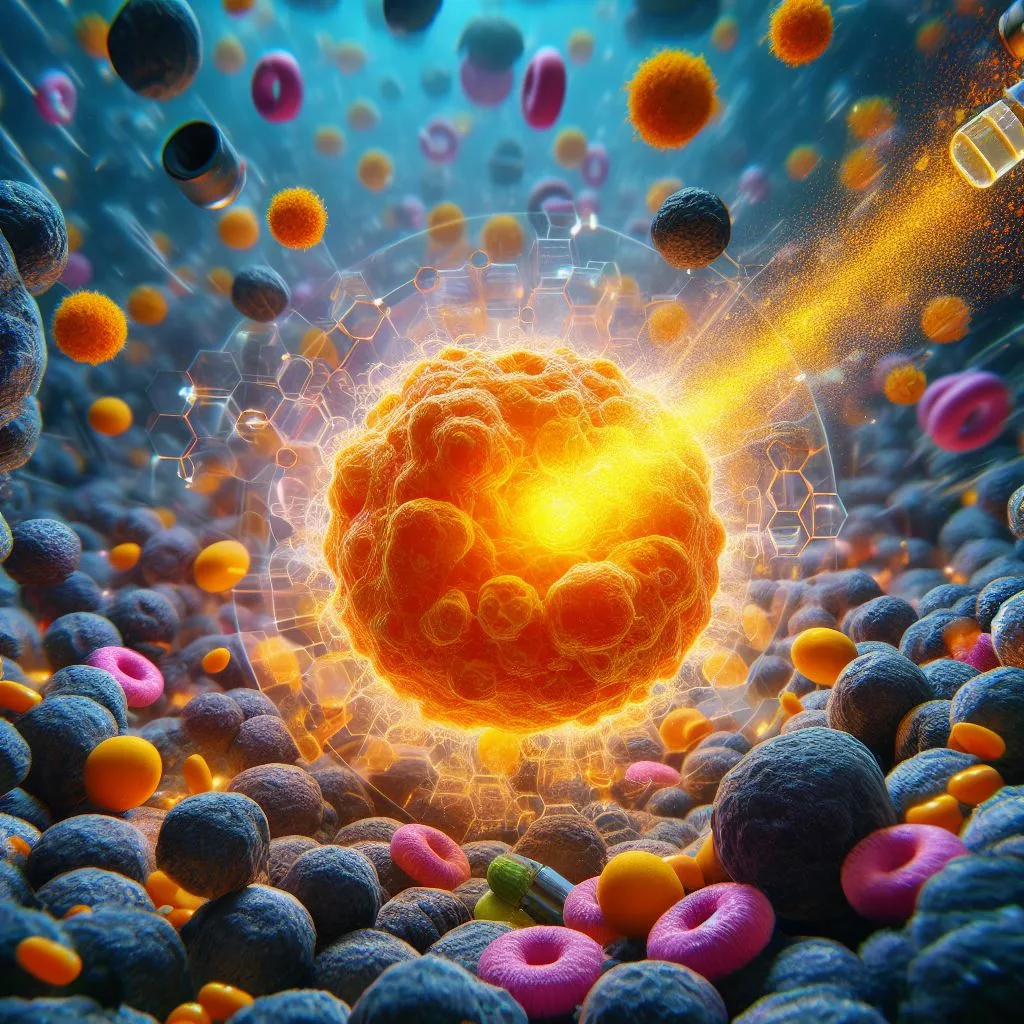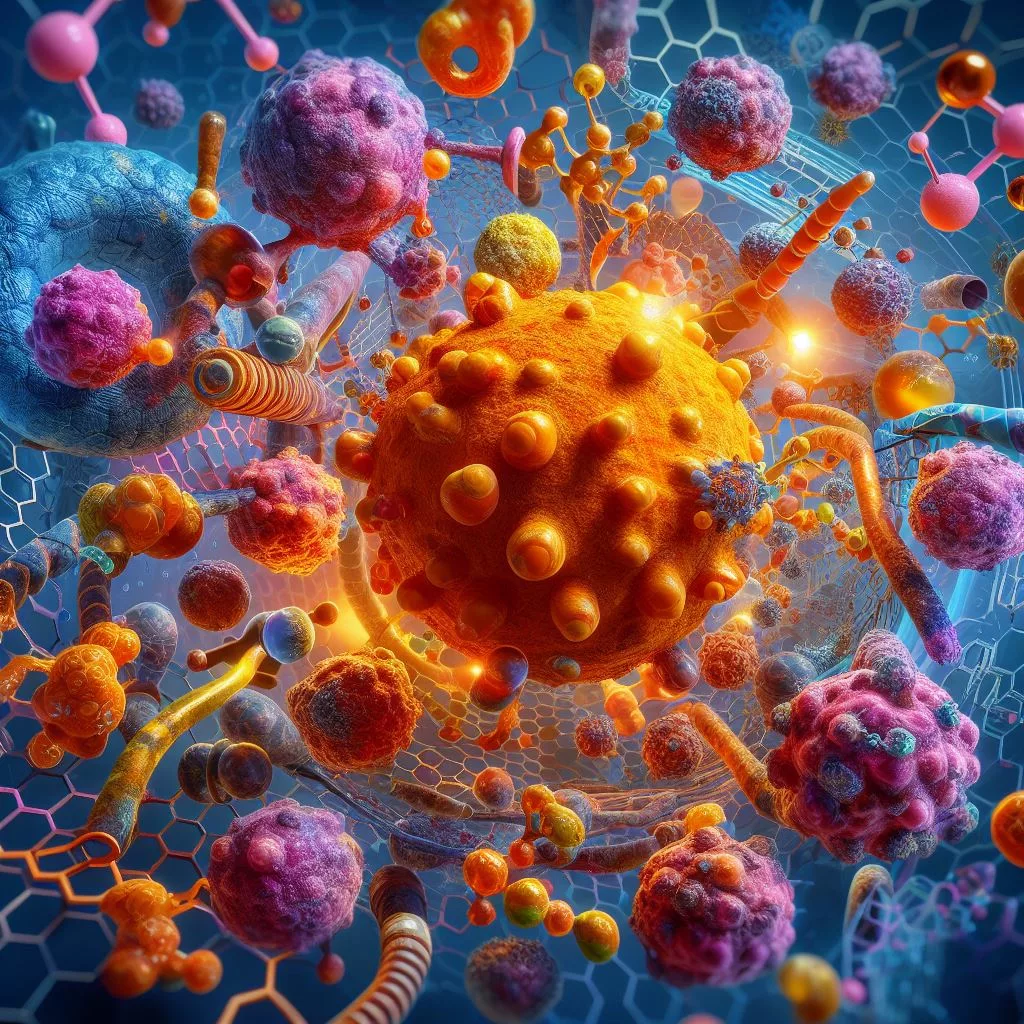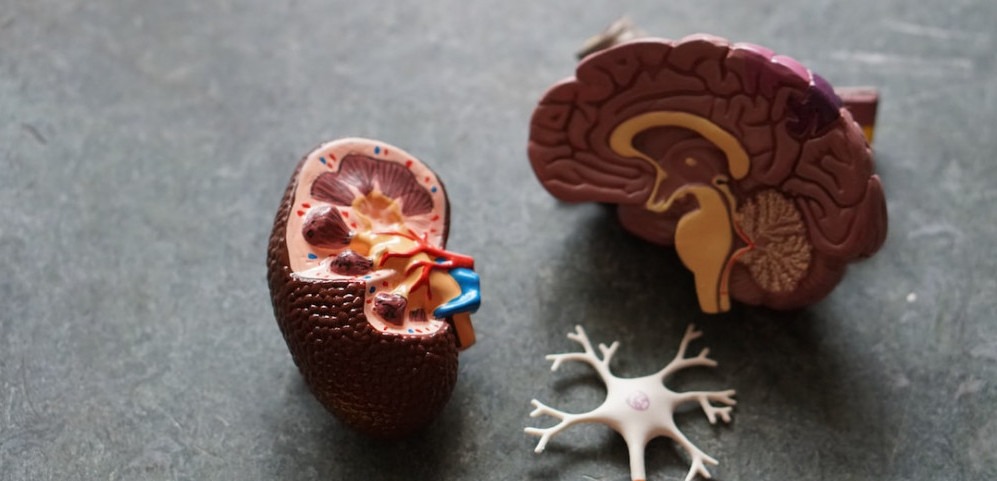
Imagine a powerful warrior standing guard against the invasion of cancer cells in your body.
That warrior is curcumin, a natural compound found in turmeric. In this article, you will gain a deeper understanding of curcumin’s role in cancer prevention.
We will explore the scientific evidence behind its cancer-fighting properties, its effectiveness in preventing various types of cancer, and the mechanisms through which it works.
Get ready to incorporate curcumin into your cancer prevention regimen and fortify your defenses.
Main Points
- Curcumin, a compound found in turmeric, has been extensively studied for its potential role in cancer prevention.
- Curcumin’s bioavailability can influence its effectiveness, and combining it with piperine found in black pepper can enhance its absorption.
- Curcumin has demonstrated efficacy in preventing multiple cancer types, such as colon, prostate, lung, and breast cancer.
- Curcumin’s anti-inflammatory, antioxidant, and anti-carcinogenic qualities are just a few of its many ways of preventing cancer.
BASIL LEAVES: 6 FASCINATING FACTS
The Science Behind Curcumin’s Cancer-Fighting Properties
Investigating curcumin’s mechanisms of action is necessary to comprehend the science underlying its ability to combat cancer. The active ingredient in turmeric, curcumin, has been the subject of much research due to its possible cancer-prevention benefits. The degree to which curcumin is absorbed and used by the body is known as its bioavailability, and this is one important factor that affects curcumin’s effectiveness. Studies have indicated that curcumin’s low bioavailability—that is, its rapid metabolism and poor absorption—may restrict its potential as a medicine.
Nonetheless, researchers have devised diverse approaches to augment the bioavailability of curcumin. For example, it has been demonstrated that combining curcumin with other substances, like the piperine present in black pepper, greatly increases its absorption. Furthermore, increasing the effectiveness of curcumin has shown promise with the use of nanoparticle-based delivery systems.
Although curcumin is generally regarded as safe, it is crucial to remember that, in the context of cancer prevention, it may have possible side effects. Some studies have reported gastrointestinal disturbances, such as diarrhea and nausea, at higher doses. Moreover, curcumin might interfere with some medications, so you should speak with a doctor before adding it to your regimen for cancer prevention.
Scientific research:
1. Sharareh Zeynalzadeh, Elham Dehghani, Ayla Hassan, and Ali Khoshfetrat, April 2023. Research Gate. 10.1007/s00289-023-04783-9
2. Ting Feng, Yumeng Wei, Robert J Lee & Ling Zhao, International Journal of Nanomedicine. https://doi.org/10.2147/IJN.S132434
Curcumin’s Effectiveness in Preventing Various Types of Cancer
It has been demonstrated that curcumin helps prevent and reduce the risk of a number of cancers, such as breast. Studies have shown that curcumin, the active component of turmeric, has potent anti-cancer properties by targeting multiple pathways implicated in the development and metastasis of cancer.
The ideal dosage of curcumin for the prevention of cancer is still to be determined. On the other hand, studies indicate that taking 1-2 grams of curcumin daily might be advantageous. Because curcumin is not well absorbed by the body, piperine, a substance that is present in black pepper, is frequently taken in addition to curcumin in order to increase it.
Gastrointestinal disorders, such as nausea, diarrhea, or upset stomach, can affect It is best to consult a healthcare professional before starting any curcumin supplementation regimen because high dosages of curcumin can also result in drug interactions and problems with blood clotting.
Comprehending the Mechanisms of Action of Curcumin in the Prevention of Cancer
Examining curcumin’s many physiological mechanisms is necessary to comprehend how it prevents cancer. The bioavailability of curcumin in the prevention of cancer is an important factor to take into account. The amount and speed at which a substance—in this case, curcumin—is absorbed and made available for use by the body is referred to as its bioavailability. Research has indicated that curcumin has a low oral bioavailability, which means that the compound is absorbed into the bloodstream in small amounts. Researchers have looked into a variety of strategies to increase curcumin’s bioavailability in order to get around this restriction, including mixing it with other drugs or utilizing specialized delivery systems.

Another important aspect is curcumin’s interaction with other cancer prevention methods. Curcumin has been found to have synergistic effects when combined with other substances or therapies, such as chemotherapy drugs or radiation therapy. It can enhance the efficacy of these treatments and reduce their side effects. Moreover, curcumin has been demonstrated to alter a number of molecular pathways implicated in the initiation and spread of cancer. Its anti-inflammatory, antioxidant, and anti-carcinogenic qualities can stop tumor growth, stop angiogenesis (the development of new blood vessels), and cause cancer cells to undergo programmed cell death (apoptosis).
Clinical Research on the Prevention of Cancer Effects of Curcumin
The results of numerous clinical trials have not yet provided clear insight into curcumin’s potential to prevent cancer. On the other hand, some debate points about possible adverse effects of curcumin in cancer prevention and dosage guidelines have surfaced.
Research indicates that curcumin is generally safe for most people when taken in recommended dosages when it comes to possible side effects. On the other hand, prolonged or high dosages may cause gastrointestinal problems like nausea, diarrhea, or upset stomach. It is significant to remember that these adverse effects are typically transient and mild.
Regarding dosage guidelines, there is not a set amount of curcumin that is recommended for preventing cancer. The ideal dosage may vary depending on a number of variables, such as the cancer type being targeted and the health status of the individual. Lower doses have been used in some studies, while doses ranging from 500 mg to 8,000 mg per day have been used in others. It is essential to speak with a healthcare provider to find out the right dosage for your particular circumstances.
Including Curcumin in Your Program to Prevent Cancer
When considering incorporating curcumin into your cancer prevention regimen, it is important to consult with a healthcare professional for personalized guidance and recommendations. While curcumin has shown potential in cancer prevention, it is essential to understand how to integrate it into your daily routine and be aware of potential side effects.
To incorporate curcumin into your daily routine, you can consider consuming it as a supplement or incorporating it into your meals. Curcumin supplements are available in various forms, such as capsules or powders, and can be taken with or without food. However, it is important to follow the recommended dosage provided by your healthcare professional or the manufacturer.
It is important to be aware of any possible side effects when using supplements containing curcumin. While curcumin is generally thought to be safe for most individuals, prolonged or high dose use may cause gastrointestinal problems like indigestion, diarrhea, or nausea. It is also vital to talk to your healthcare provider about any possible drug interactions as curcumin may interact with certain medications, like blood thinners.
Scientific Research:
1. Muthu K Shanmugam, Frank Arfuso, Judy Chia Ghee Sng, Anupam Bishayee. 10.1016/B978-0-12-812494-9.00005-6
2. Yingmei Zhao, Tao Liang, Xu Xiao Ye, Zuowei Li, Dongliang Yan. https://doi.org/10.1080/1061186X.2017.1306535
Frequently Asked Questions
What Are the Possible Hazards or Side Effects of Using Curcumin as a Supplement to Prevent Cancer?
When taking curcumin as a supplement to prevent cancer, it is crucial to be aware of potential interactions and problems with bioavailability. These components could affect the product’s effectiveness and carry risks or negative effects.
Is Curcumin More Effective When Combined With Other Therapies, or Can It Be Used as a Standalone Cancer Treatment?
Although curcumin as a stand-alone cancer treatment is still being investigated, available data indicates that curcumin may work better when combined with other treatments. Further research is necessary to fully realize its potential.
How Long Does Curcumin Usually Take to Start Working as a Cancer Prevention Agent?
The benefits of curcumin in preventing cancer usually take time to manifest. Its bioavailability and mode of action are crucial in the prevention of cancer, even though the exact duration varies.
When Using Curcumin for Cancer Prevention, Are There Any Specific Dosage Recommendations?
When using curcumin to prevent cancer, there are specific dosage recommendations. It is imperative to adhere to these guidelines in order to guarantee efficacy and mitigate any possible adverse reactions.
Is there a list of people or medical conditions that should not use curcumin to prevent cancer?
Curcumin should not be used as a cancer preventive by some people with certain medical conditions. It is crucial to remember that curcumin has the potential to interact with other medications and has demonstrated efficacy in preventing a number of cancers.
Conclusion
Well, folks, it seems like curcumin is the superhero of cancer prevention. With its powerful mechanisms of action and effectiveness in preventing various types of cancer, there’s no denying its potential. Clinical studies have shown promising results, making it a worthy addition to your cancer prevention regimen. So why not spice up your life, quite literally, with some curcumin? It might just be the secret ingredient to keeping cancer at bay. Stay healthy, my friends!


